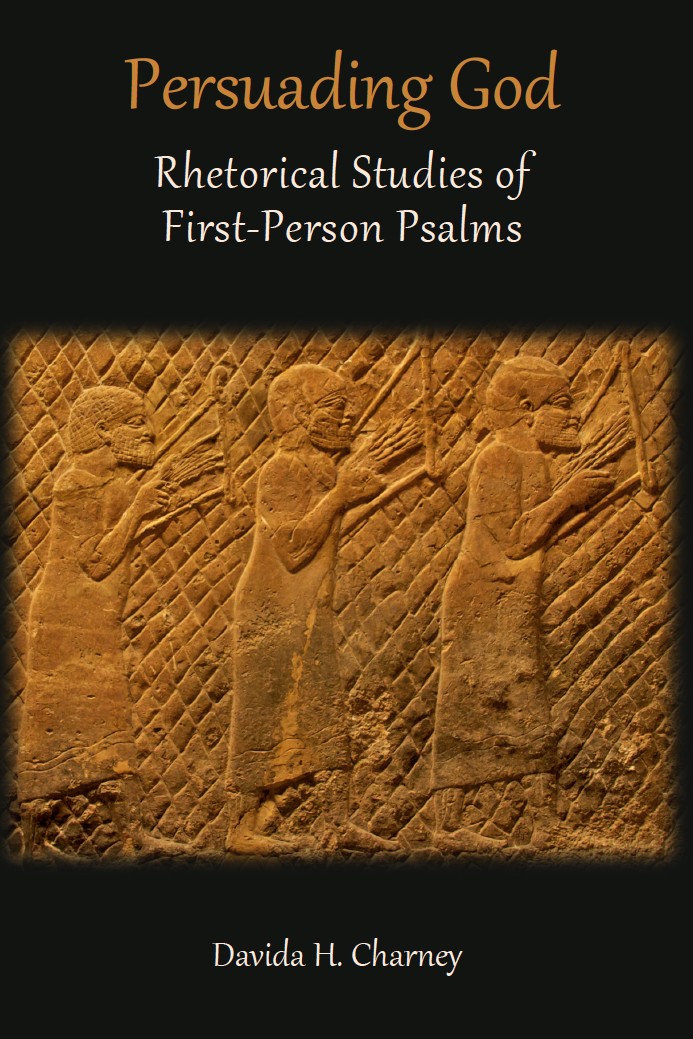Persuading God: Rhetorical Studies of First-Person Psalms
Price range: £19.00 through £45.00
Written by a scholar of rhetoric, Persuading God demonstrates that the first-person psalms that make up over a third of the Book of Psalms were designed not simply to express the feelings of individual Israelites but to persuade God to act.
Written by a scholar of rhetoric, Persuading God demonstrates that the first-person psalms that make up over a third of the Book of Psalms were designed not simply to express the feelings of individual Israelites but to persuade God to act.
The book casts a new light on the roles of all the players in the situations in which the psalms were composed and performed: the person represented by the speaker on whose particular troubles the psalm is based, the spectators and opponents who are sometimes addressed directly by the speaker, the poet-musicians who craft the speaker’s case and occasionally undermine it, and most of all, God as the direct addressee whose presumed openness to persuasion and willingness to intervene underlie the entire event.
The readings provide new explanations for many long-standing puzzles: how to deal with the long string of imprecations in Psalm 109, whether Psalm 4 is best read as protesting a false accusation or as countering apostasy, why so many verses in Psalm 62 begin with the exclamation ach , and, more generally, why so many first-person psalms seem to swing abruptly between despair and praise.
The book demonstrates the relevance of contemporary rhetorical theory to Hebrew Bible studies, including the work of ChaÌøm Perelman and Lucie Olbrechts-Tyteca, Kenneth Burke, and Mikhail Bakhtin. It also illuminates the state of rhetorical practice in the ancient Near East at the same time that rhetorical theories were first being codified and taught in archaic and classical Athens.
Additional information
| table of contents | Introduction Psalms as Arguments in the Israelite Public Sphere Beyond Psychologizing the Speaker Beyond Presuming Piety Distinguishing Rhetorical and Literary Analyses Ancient and Contemporary Rhetorical Theory Toward a Rhetorical Theory of the Psalms Stances toward God A Note on Translations 1. PRAISE AS DIVINE CURRENCY Praise as Negotiable Currency Psalm 71: Extending the Supply of Praise Praise as a Charged Current Psalm 16: Balancing with God's Guidance Psalm 26: Ongoing Refinement Psalm 131: Bragging on Quietism 2. INSTRUCTIONS FOR KEEPING FAITH Two Pieces of Rhetorical Theory: Amplitude and Identification Psalm 4: A Seven-Step Recovery Program Psalm 62: Restoring the Expletive Psalm 82: Persuading Gods Conclusion: Bait and Switch? 3. THE LAMENT AS PROPOSAL Psalm 54: Invoking Action Psalm 13: Questioning Absence Absence of Amplitude Address, Problem, Action: Divine and Reciprocal 4. SONGS OF INNOCENCE Psalm 44: God's Breach of Covenant Psalm 22: From Worm to Champion Psalm 17: Assertions of Godliness Conclusion 5. THE KAIROS OF CURSES Psalm 7: Measured Innocence Psalm 35: Paying Back in Kind Psalm 109: Returning Curse for Curse Conclusion 6. RECOVERING FROM GUILT The Discourse of Guilt Psalm 130: Proclaiming Patience Psalm 38: Eloquently Inarticulate Psalm 51: An Action-Oriented Confession Conclusion 7. SELF-PERSUASION AND WISDOM Psalm 77: Reimagining the Past Psalm 73: Speaking Internally and Externally Discipline and Persuasion |
|---|---|
| author | |
| authors | |
| editors | |
| isbn | |
| list price (paperback) | |
| page extent | |
| publication | |
| publication date | |
| series | |
| table of contenta | |
| version |

